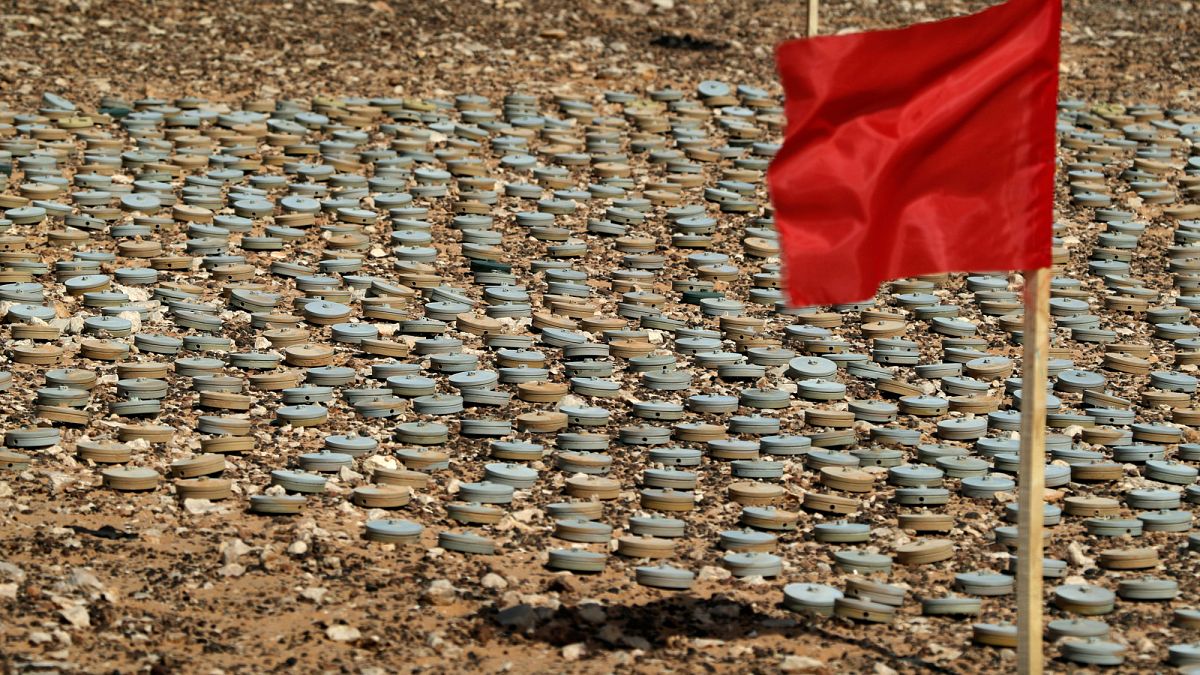European Commission president Ursula von der Leyen announced on Tuesday (17 January) a plan to boost subsidies and tax breaks for clean-tech companies in the face of US and Chinese competition.
“China has been openly encouraging energy-intensive companies in Europe and elsewhere to relocate all or part of their production,” she said, speaking at the World Economic Forum in Davos, Switzerland. “To get ahead of our competition, we need to make Europe more investment friendly.”
The EU intends to respond “more robustly” and to that end has proposed a new ‘Net-Zero Industry Act,’ inspired by the EU’s chips act last year, which will fasttrack clean-tech production sites and increase funding for strategic sectors.
The International Energy Agency estimates the clean-tech sector will be worth €600bn annually in 2030, and von der Leyen said the EU only has a “small window” to invest and stake its claim before the “fossil-fuel economy becomes obsolete.”
The European push for clean tech is primarily a response to the US Inflation Reduction Act approved by congress in the summer, which directs about $369bn [€340bn] to clean energy and energy-security programmes.
The EU itself does not have the same financial firepower and needs to negotiate with member states on how to relax the bloc’s state-aid rules best.
These rules are meant to prevent unfair competition within Europe as Germany could outspend all other countries, wiping away their industries.
To protect against so-called “fragmentation,” von der Leyen reiterated her determination to propose a new European fund financed by fresh EU borrowing, backed by all the member states.
The proposal is due in the summer, but it is still being determined whether a majority of member states support it. Germany, the Nordic countries and the Netherlands traditionally oppose new EU debt, preferring to use existing European funds first.
But this argument may not convince others this time, as state-aid rules have already been relaxed in response to the energy crisis (and the pandemic before that), which has benefitted Germany especially.
In 2022, Brussels approved 170 national emergency state aid applications, which accounted for €540bn. Over 50 percent was allocated to Germany, under 30 percent to France. Only four percent went to Italy, which has the second-highest industrial output in Europe, far outstripping France.
“[A sovereignty fund] is essential if we want to strengthen our competitiveness without undermining our internal market and its level playing field,” Italian commissioner for economy Paolo Gentiloni said. “It’s not about a subsidies war with other countries or the US. It’s about the strengthening of European competitiveness.”
Realistic
Von der Leyen made her announcement against the background of ongoing efforts by EU negotiators to convince their US counterparts to extend some subsidies and tax breaks to EU companies—especially electric vehicles. Von der Leyen also called on the US to set “fair” incentives so “we can jointly benefit.”
But trade commissioner Valdis Dombrovkis, who is leading the negotiations, said the EU “has to be realistic” about the US adapting its policy to EU wishes.
Speaking ahead of his meeting with US trade representative Katherine Tai in Brussels on Tuesday, he said, “not all our problems with the Inflation Reduction Act will be solved, so we still need to see what the European policy response should be.”




















Discussion about this post